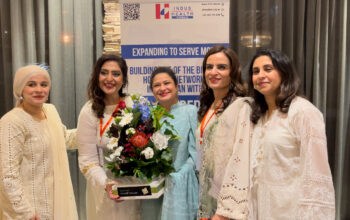Novak Djokovic’s Australian Open hopes in limbo amid Australian Border Force investigation
Novak Djokovic may have held a practice session at Melbourne Park on Tuesday, his second day out of detention, but still faces the prospect of deportation because he’s not vaccinated for COVID-19.
The top-ranked Djokovic hit the show courts within hours of winning a legal battle Monday against the cancellation of his visa, based on procedural grounds. He returned Tuesday afternoon for a closed practice, with doors locked and only his support team allowed into Rod Laver Arena.
While he’s trying to make up time after spending four days confined to an immigration detention hotel, Djokovic is conscious he could again have his visa revoked ahead of the Australian Open.

A source with knowledge of the situation told CNN the Australian Border Force is investigating whether Djokovic submitted a false travel declaration ahead of his arrival in Australia.
Djokovic declared he had not travelled and would not do so in the 14 days leading to his arrival in Australia on Wednesday January 5, according to a travel declaration submitted as evidence to the court determining whether he would be allowed to remain in Australia.
Various pictures taken during that two-week period appear to show Djokovic in both Spain and Serbia.
Djokovic told border officers that Tennis Australia completed the declaration on his behalf, but it was noted by the officer who cancelled his visa that the sporting body would have facilitated that “based on information the visa holder provided”.
The penalty for submitting a false travel declaration carries a maximum penalty of 12 months’ prison, according to the Department of Home Affairs website.

The ABF investigation comes as Immigration Minister Alex Hawke considers exercising his power to deport the 34-year-old Serbian under separate legislation, assessing a medical exemption that the unvaccinated Djokovic relied on to fly into Melbourne and the information supplied in the visa application.
Mr Hawke’s office has issued a statement saying the matter is still under consideration “in line with due process”.
The prime ministers of Australia and Serbia discussed Djokovic’s precarious visa earlier on Tuesday.
The deportation drama has polarised opinions and elicited strong support for the 20-time Grand Slam winner in his native Serbia.
Djokovic returns to Rod Laver Arena
Australian Prime Minister Scott Morrison and his Serbian counterpart, Ana Brnabić, agreed in their telephone conversation to keep in touch over the disputed visa, Mr Morrison’s office said.
“The PM explained our non-discriminatory border policy and its role in protecting Australia during the COVID-19 pandemic,” Mr Morrison’s office said in a statement.
Ms Brnabić asked Mr Morrison to ensure Djokovic was treated with dignity, public broadcaster Radio Television of Serbia (RTS) reported.

“The (Serbian) prime minister especially emphasised the importance of the conditions for training and physical preparation for the upcoming competition, considering that Novak Djokovic was not allowed to train in the previous days,” RTS reported.
Djokovic posted an image of himself and three members of his team at Melbourne Park in the very early hours of Tuesday on social media.
“I’m pleased and grateful that the Judge overturned my visa cancellation. Despite all that has happened, I want to stay and try to compete @AustralianOpen. I remain focused on that,” Djokovic tweeted. “I flew here to play at one of the most important events we have in front of the amazing fans.”
A border official cancelled Djokovic’s visa at Melbourne’s airport last Thursday, hours after he arrived in Australia from Marbella, Spain, to compete in the tournament.
Djokovic family thanks Australia’s justice system
A judge restored his visa and ordered Djokovic be released from detention on Monday, citing procedural errors by the border officials at the airport.
Djokovic had been given a medical exemption by the Victorian government and Tennis Australia, the tournament organizer, from its vaccination rules to compete because he was infected with COVID-19 last month.
But Border Force declined to allow him an exemption from national vaccination rules for incoming non-citizens.
It said an infection in the previous six months was only a ground for a vaccine exemption in cases in which the coronavirus caused severe illness.
Since Djokovic’s visa was cancelled, Czech tennis player Renata Voráčová and an unnamed European tennis official have been deported for similar reasons.

The Morrison government has blamed the debacle on Tennis Australia, which ministers accuse of misleading players about Australia’s vaccine requirements. But newspapers have reported that Tennis Australia had pleaded with the Department of Home Affairs to check the visa paperwork of Djokovic and other players before their in-bound flights.
Victorian Premier Daniel Andrews said the federal government had changed its border rules in recent months.
“When we talked about exemptions previously, you would recall that Minister Hawke had said that it was his expectation that if you weren’t double-vaxxed, you wouldn’t get into the country whether you’re playing tennis or doing anything else,” said Mr Andrews.
“Turned out that wasn’t the Commonwealth government’s position and that they have been letting people in who haven’t been double-vaxxed.”








